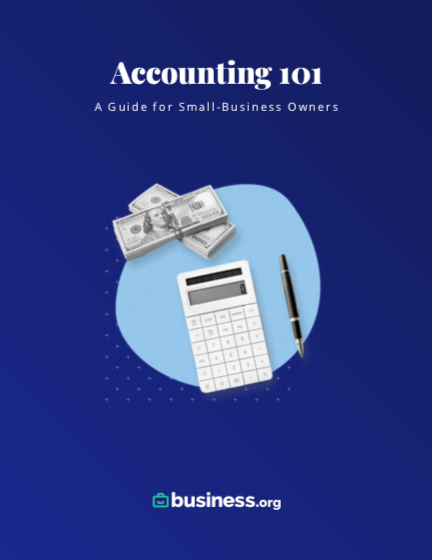We are committed to sharing unbiased reviews. Some of the links on our site are from our partners who compensate us. Read our editorial guidelines and advertising disclosure.
Why Should You Measure Your Return on Investment (ROI)?
A return on investment (ROI) is a financial measure of how profitable a financial venture will be. Investors often calculate their ROI before purchasing stock, but it's also a useful metric for small-business owners who want to know if purchasing a large piece of equipment or investing in a certain project will ultimately pay off.
The easiest way to calculate ROI is to divide your net profit by your total assets. If you're trying to calculate the ROI of a certain business decision, you can use this simple formula: ROI = (Projected earnings–project cost)/project cost.
This article explains the why of calculating your ROI. To get more info on the ins and outs of how exactly to make ROI calculations, check out our piece on how to calculate your return on investment.
Why should you calculate your ROI?
ROI is the most commonly used ratio for gauging an investment's overall profitability. But like we said above, the formula can also be used to measure the potential value of making a smaller business decision, not just to measure the value of investing in a business as a whole.
For instance, you can calculate the return on investment of purchasing inventory, upgrading office equipment, investing in a new marketing tactic, or making a new hire. Performing these calculations can help you see in advance whether a financial choice on your part will add up to a net revenue gain—or a net loss.
Business owners aren't the only ones who benefit from calculating ROI. If you're trying to attract investors to your business, those investors will want to calculate the return they're likely to get on investing in your vision. To help investors make that decision, you'll need to draw up a business plan and submit financial documents like profit and loss statements. (Pro tip: you'll also need to provide this information to lenders like banks to demonstrate that you're running a business that will ultimately make money.)
Without this information, investors can't make accurate projections and informed decisions.
By signing up I agree to the Terms of Use and Privacy Policy.
ROI and long-term profitability projections
You can (and should) use the ROI calculation to figure out out if a specific tangible purchase will be worth it to your business's bottom line. However, estimating the benefits of one tangible investment is just one of the many ways small-business owners can benefit from calculating ROI.
For instance, what if you want to understand the profitability of a business over the course of years, not just the value of a one-time investment? The ROI calculation will be a bit more complicated, but it's just as essential for making a wise financial choice.
Here are a few examples of how you can use the ROI equation to make long-term projections:
- Let's say you're looking to launch a new restaurant. You've found investors willing to pitch in a total of $400,000. When you consider all of your expenses and projected income, you estimate profit of $100,000 per year. That's an ROI of 25 percent—which is pretty optimistic.
- For a more realistic projection, consider your ROI over the course of several years and toss in a few potential bumps in the road for good measure. For instance, say your restaurant averages a $100,000 profit for each of its first four years. Your profit declines to $75,000 in year five, $50,000 in year six, and $0 in year seven.
In this case, your real world rate of return is 14%. This ROI is more realistic than the 25% calculated earlier, and honestly? That's a fairly solid return on investment for your potential sources of funding.
When is it less helpful to calculate ROI?
Calculating your return on investment can certainly be helpful for your investors, your lenders, and yourself. But it's worth remembering that ROI isn't everything.
For instance, it's hard to calculate your return on investments when it comes to your intangible assets. Returns on an investment in the environment or on the overall social good aren't really quantifiable. Remember that eery business expense— including time, resources, and money—is an investment. While you may not always get a positive value return, what you gain can be more than just cash.
And for another thing, a lot more factors than just money can impact an investment's value. Equipment deteriorates over time, but it can be hard to precisely predict a machine's exact devaluation.
Put simply, you should think of ROI as just one of many useful financial tools that can inform your business decisions. Instead of putting all your eggs in the ROI basket, diversify your financial wisdom by staying up on your business's overall profit loss, cash flow, revenue, and more.
Accounting software can help you make all sorts of financial projections that will keep your business on track for profitability. Want to find the right software for your needs? Enter some basic information about your business and we'll send you a few personalized quotes to get you started on the path to financial success.
The takeaway
The ROI formula can give you a quick analysis of a financial choice's possible profitability for your business. Of course, calculating your bottom-line return is just one consideration in making a business investment—but it can be a crucial first step in the process.
Looking for more financial tools to help guide your business decisions? Check out our list of the year's best bookkeeping software, which includes free options that help save your business money.
Related reading




